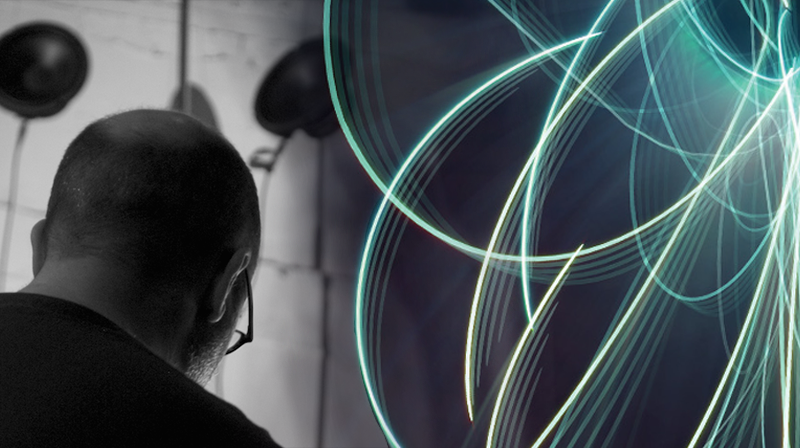Scott Wilson: Composing a career in electronic and experimental music

For Scott Wilson, it all started in the music room at Richmond Senior Secondary. “We weren’t a special music school, but we had a great music teacher,” he says, remembering the wide and eclectic range of genres he experienced in class. “I was hungry for everything.”
Today, as Professor of Composition and Electronic Music at the University of Birmingham in the United Kingdom, this curious B.C. kid has continued to explore, experiment, and play with music and sound in ways that few have even imagined.
One of Scott’s most notable recent projects involved the European Council for Nuclear Research’s (CERN) Large Hadron Collider, the world’s largest and most powerful particle accelerator. Working with CERN physicists through an interdisciplinary project called art@CMS, Scott was able to take the data produced by high-energy particle beams colliding at near the speed of light and translate them into sounds. “It’s music you couldn’t come up with yourself,” he says.
Using custom software, Scott has used these sounds to “improvise with code” in educational settings as well as perform in electronic ensembles (including at a party for the CERN scientists themselves). Interestingly, Scott noticed that audiences tended to relate even more strongly to this music than typical improvisation. The universe’s subatomic mysteries have a special allure, after all.
Unlocking music education
After high school, Scott left the music room to briefly pursue photography before choosing to study jazz guitar at Vancouver Community College (VCC). Not long into VCC’s music program, and influenced by celebrated VCC instructors David Gordon Duke and Peter Hannan, Scott switched his focus to composing and never looked back.
“My VCC experience was valuable because of the openness there; it’s not locked into one tradition,” he says. Scott also relates VCC’s unique approach to the important work of decolonizing music curriculums. “Schools around the world, and especially in the UK, are really struggling to move away from the white, male, colonial assumptions in music education,” he says. “VCC was doing this 30 years ago.”
Stay strange
After VCC, Scott continued down an academic path, obtaining a bachelor’s degree from Simon Fraser University, a master’s degree from Wesleyan University in Connecticut, a PhD from the University of Toronto, and has been working as a professor in the UK for the past 18 years.
Scott has enjoyed his career in academia but his advice for music students – especially those interested in experimental music and composition – is to find their own way while keeping an open mind.
According to Scott, the possibilities are endless for anyone who truly commits to a music-related career, especially with technologies that are now more accessible than ever before and genre boundaries continuing to come down. “There is more appetite than you may realize for strange music,” he says. “Your career may not be what you imagined, but that’s a good thing.”
Hear more from Professor Scott Wilson on Friday, Feb. 4 in one of three free masterclasses during VCC’s 2022 Music Alumni Week. RSVP for Scott's masterclass now by emailing music@vcc.ca.
Ready for a music-related career? Applications are now open for VCC Music programs starting in September 2022.
